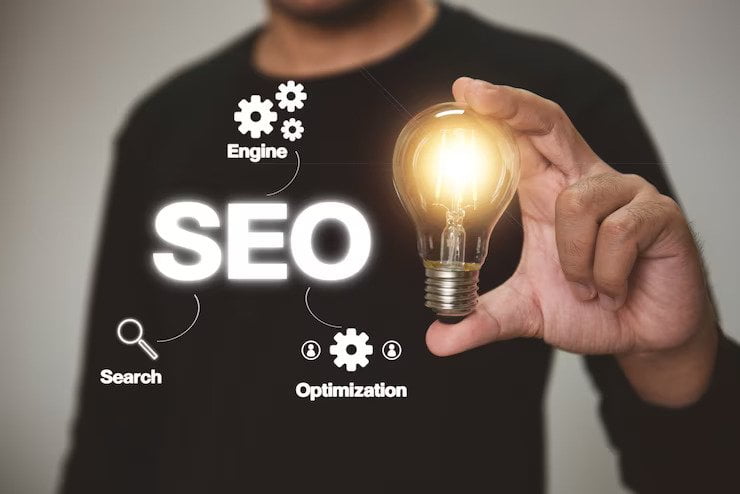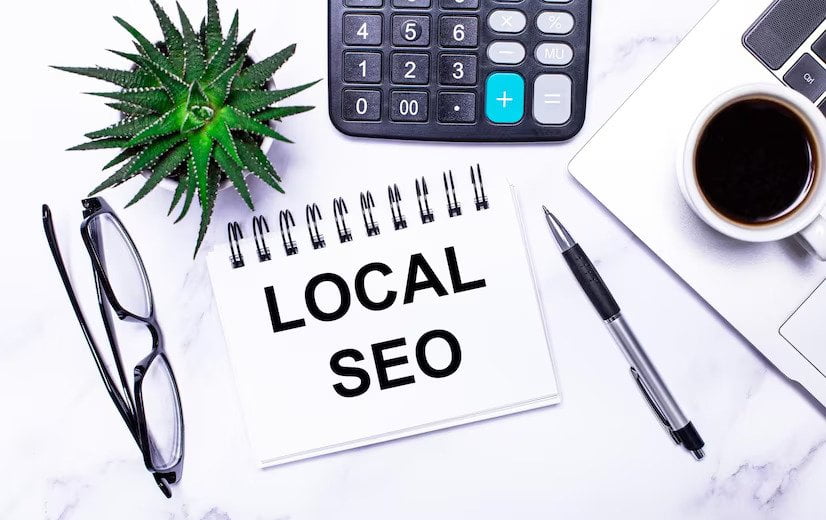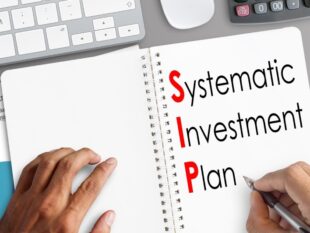How To Use SEO To Drive More Traffic And Leads To Your Website
by Arnab Dey Marketing Published on: 09 May 2023 Last Updated on: 05 June 2023

The success of your business as a mortgage broker or lender depends on your ability to produce excellent mortgage leads.
It’s crucial to have a great internet presence because so many potential customers look for information about mortgages online. Search engine optimization (SEO) can help with this. You can increase internet traffic and lead generation by optimizing your site for a certain set of keywords.
We’ll look at how SEO may be used to drive more mortgage leads to your website in this article. We’ll talk about things like local SEO, link building, content marketing, on-page optimization, and keyword research. You’ll have a better knowledge of how to use SEO to increase traffic and leads to your website at the end of this article.
Keyword Research

Each effective SEO strategy is built on thorough keyword research. It entails locating and examining the keywords and phrases that potential clients use when looking for mortgage-related information. You can target specific keywords on your website and raise your website’s search engine rankings by knowing which keywords are relevant and in demand.
You can use a variety of tools, such as SEMrush, Google Keyword Planner, or Ahrefs, to undertake keyword research. These tools offer information on keyword difficulty, search volume, as well as similar keywords. These tools allow you to discover the keywords that your intended audience uses to search the web and adjust the content on your website accordingly.
It’s crucial to concentrate on both long-tail and wide keywords when conducting keyword research. Long-tail keywords are simpler to rank for because they are more specialized and face less competition. For instance, you might target the long-tail term “mortgage lenders for first-time homeowners” rather than the general phrase “mortgage,” to generate more qualified mortgage leads for your website.
In conclusion, performing keyword research is a crucial component of any effective SEO plan. You may increase your website’s search engine ranks, draw more visitors and leads, and better target the right keywords.
On-Page Optimization
On-page SEO is the practice of enhancing certain web pages so that they rank higher in search results and draw more visitors to your website. This entails optimizing several website components, including the content, meta descriptions, and URLs.
The usage of target keywords is one of the primary on-page SEO strategies. Search engines can be informed that your content is pertinent to a given topic by including pertinent keywords in your title tags, meta descriptions, and headers. But, it’s crucial to employ keywords naturally and to avoid stuffing your content with them as this might harm your search engine rankings.
Making clean URLs is a crucial part of on-page optimization. Using goal keywords in URLs can help your website perform better in search engine results. For instance, what about www.yoursite.com/ instead? Use a URL like www.yoursite.com/mortgage-lenders-for-first-time-homebuyers instead of the string p=123. This URL is easier to use and contains the desired term.
High-quality, useful content creation is crucial, in addition to the use of target keywords and clear URLs. Your material must be valuable and pertinent to your intended audience. These can contain articles, blog entries, infographics, and other content kinds. You may increase traffic to your website and raise its search engine rankings by producing high-quality content.
Ultimately, every effective SEO approach must include on-page optimization. You may raise your website’s search engine ranks and generate mortgage leads by optimizing specific web pages.
Content Marketing

An essential component of SEO is content marketing, which is producing and disseminating useful information to lure and retain a target audience. A variety of formats for this content are possible, including blog articles, infographics, videos, podcasts, and social media updates.
Producing valuable material for your target audience is the secret to effective content marketing. These can include educational pieces, how-to manuals, case studies, and other kinds of content that respond to frequently asked questions and mortgage-related issues.
To increase website traffic and lead generation, it’s crucial to both produce and promote high-quality content. Social media, email marketing, guest blogging, and other platforms can all be used for this.
Optimizing your content for search engines is a crucial component of content marketing. This entails incorporating pertinent keywords into your text, making sure your meta descriptions are optimized, and building internal links to other pertinent pages on your website.
In general, content marketing is an effective and efficient strategy for increasing website traffic and lead generation. You can establish your brand as an industry thought leader and gain the trust of potential customers by producing great and relevant content that meets the needs and problems of your brand’s target audience.
Link Building
Link building, a crucial component of off-page optimization, entails obtaining backlinks from other websites to raise the search engine rankings of your website. Backlinks are links pointing to your website from other websites. Backlinks are seen by search engines as a vote of confidence in your website, proving that other websites value and find your material relevant.
But not every backlink is made equal. It’s crucial to concentrate on obtaining backlinks of the highest caliber from reliable websites. This can be accomplished through a variety of link-building techniques, including guest blogging, finding broken links, and resource page linking.
Guest blogging is penning articles for websites in your niche with a link back to your website either in the author bio or the body of the article. Finding broken links on other websites and providing a substitute link to your material is known as broken link building. Finding pertinent resource pages on other websites and asking for a link back to your pertinent information constitutes resource page link building.
While link building can be a useful strategy for raising your website’s search engine results, it’s vital to steer clear of unethical practices like link farms and link buying. These strategies may result in penalties from search engines and damage the reputation of your website.
Ultimately, link building is a crucial component of SEO that can raise your website’s position in search results and bring in more visitors and leads. You can establish your website as a useful resource in your business and raise your website’s visibility online by concentrating on getting high-quality backlinks from trustworthy websites.
Local SEO

Specifically geared toward optimizing your website for local search results, local SEO is a subset of SEO. This is crucial for companies that depend on local clients and have a physical presence.
Using local keywords and phrases to optimize your website’s content, meta tags, and URLs is known as local SEO. For instance, you might wish to utilize local keywords like “mortgage lenders in [city name]” or “home loans in [city name]” if you provide mortgage services in that location.
Claiming and improving your company listings on local directories like Google My Business, Yelp, and the Yellow Pages is an additional crucial component of local SEO. These directories include crucial details about your company, like the location, contact details, and operating hours, and they can raise your ranking in local search results.
Local SEO also takes into account client reviews and ratings on these directories. Good evaluations can raise your company’s search engine results and draw new clients to it. To demonstrate that you value client feedback and are dedicated to providing top-notch service, it is crucial to keep an eye on customer evaluations and reply to them.
Finally, it’s critical to check that your website is mobile-friendly and that the information about your company is accurate across all platforms and directories. This can increase your company’s internet presence and make it simpler for clients to find and get in touch with you.
In general, local SEO is a crucial component of SEO for companies that have physical locations. You may increase your exposure in local search results and draw more clients to your company by optimizing your website for local search results and claiming and optimizing your business listings on local directories.
Conclusion
To sum up, employing SEO to increase website traffic and leads may be a very successful technique for mortgage businesses trying to raise their online visibility and draw in new clients.
You can raise your website’s search engine rankings and increase the targeted traffic to your website by carrying out in-depth keyword research, optimizing the on-page elements of your website, producing worthwhile content, constructing high-quality backlinks, and putting a special emphasis on local SEO.
It’s crucial to keep in mind that SEO is a long-term strategy that necessitates continuous work and supervision. It’s critical to stay current with the most recent best practices and modify your SEO strategy as necessary because search engines are continually upgrading their algorithms and ranking variables.
Ultimately, you can build your brand as a respected authority in the mortgage sector and get more high-quality leads for your company by investing in SEO and consistently enhancing your website’s online visibility.
FAQs
What is SEO?
SEO stands for search engine optimization, which is the practice of improving the quantity and quality of website traffic by increasing the visibility of a website or a web page in a search engine’s organic results. Essentially, SEO helps your website rank higher in search engine results pages, making it easier for people to find your business online.
How does local SEO differ from traditional SEO?
Local SEO is a type of optimization of the search engine which focuses on optimizing a site for search results locally. This involves optimizing for location-specific keywords that are specific to a particular location, optimizing and creating listings on Google My Business, and building local citations. Traditional SEO, on the other hand, is focused on optimizing a website for broader, more general search queries.
What is on-page optimization and how does it improve SEO?
On-page optimization refers to the practice of optimizing individual web pages to improve their search engine rankings and attract more relevant traffic. This includes optimizing on-page elements like title tags, meta descriptions, headers, content body, and images.
By improving these elements, you can make your website more relevant and valuable to search engines, which can improve your search engine rankings and attract more traffic to your website.
Read Also:







































































































